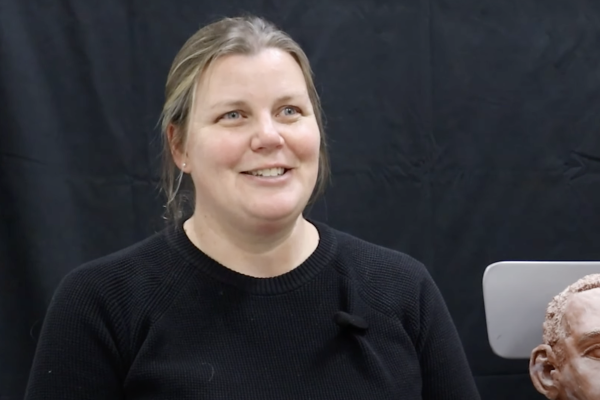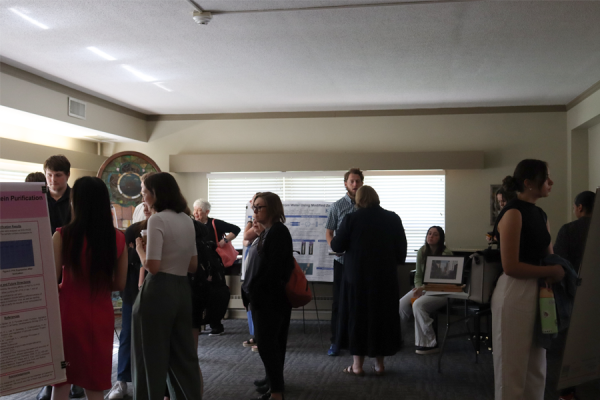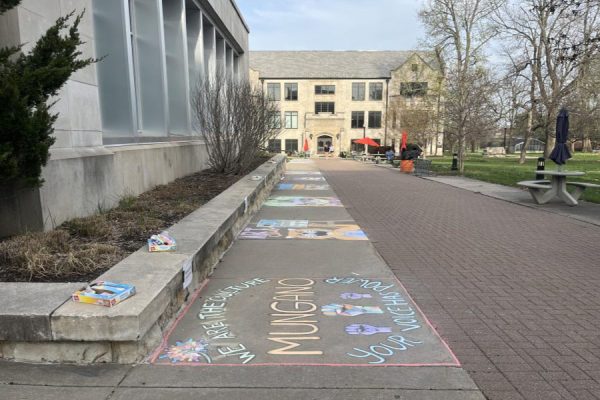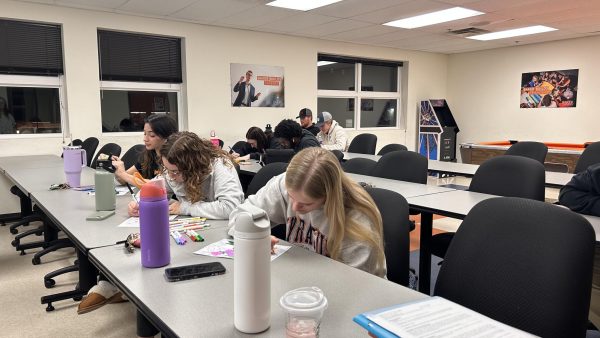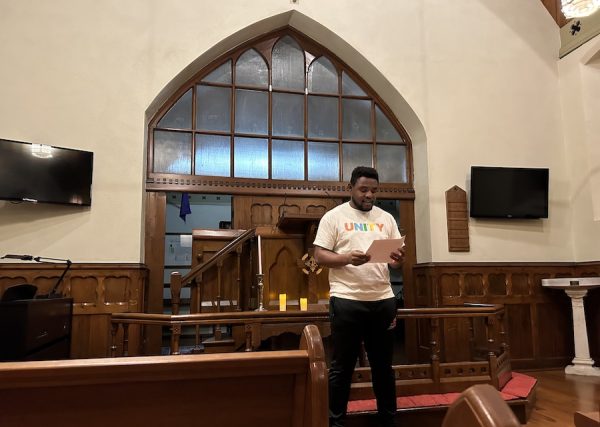Intellectual organizations fostered student bonds
This article was originally published prior to June 2, 2013. Due to a change in the content management systems, the initial publication date in not available.
Intellectual activity and philosophical debates took center stage in the social scene before greek organizations and time slowly smote out literary societies, the first social outlet for students on campus.
“You have to think about a different pattern of social life and a different structure of student life on the campus,” Harold Kolling, former University Archivist, said. “There had been literary societies ever since Baker’s beginning, but they had had different names and were short lived and these were a climax so to speak in the development of the student literary society.”
For more than 30 years, four literary societies were the center of students’ lives outside of studying and sleeping including the Biblical, Athenian, Aelioian and Clionian societies that students gravitated to under their own initiative to take part in music, art and public debates over issues of the time.
The Philopeuthian Society, organized in the fall of Baker’s birth with members meeting every Friday evening, died three years later. Multiple other societies would come and go however, debating issues ranging from whether theater-going was evil and if women assert greater influence over society than men, according to university archives.
The Biblical Society began in 1877 as a group for young men studying for the ministry but later expanded its content. The Athenian Society formed later in the same year for men with women forming the Aelioian Society in 1878 and the Clionian Society in 1881. With the heart of the curriculum focusing on ancient languages, Kolling said literary societies furthered those interests by getting people to come together outside of class.
“College, it was understood back in the 19th century, was an educational institution that emphasized study of language particularly,” he said. “You have to think of them as a sort of combination of social and intellectual interests.”
The societies also offered annual events such as the Clionians lantern parade in the fall or the Aelioian’s grape jelly feed, which came from grapes they grew on a trellis near Parmenter Hall, what University Archivist Brenda Day called “an excuse to get together with the boys.”
Day said some of the events the women’s organizations held were very elaborate and the time and thought that went into the preparation can be appreciated from handmade place cards and invitations that have survived.
“It isn’t just a card that has the menu on it; it’s a card that flies around in the shape of a woman’s skirt or a bell or whatever their theme was and the colors that they used and then a beautiful elaborate menu,” she said.
With literary societies providing the main social structure for many years, greek organizations started to emerge at the turn of the 20th century.
“Probably, the greek organizations, in general, grew out of the practice of students eating together because in those days there was no union,” Kolling said. “Students ate in private homes, and they developed a sort of boarding house concept.”
With national organizations forming east of the Mississippi River, Kolling said the organizations started out as locals with the intent to become affiliated with a national organization.
“The question was whether individuals could join one of these new organizations and still be associated with one of the traditional literary societies because the loyalty was so strong among those literary societies,” he said.
Some groups formed anti-fraternity clauses to prevent members from joining greek organizations, however, by the end of World War I most of the literary societies had ceased and been replaced by the more social groups.
Five sororities and fraternities currently secure charters for Baker’s campus, however many have come and went, according to 1924 and 1977 editions of the Baker Wildcat and university archives.
At least nine greek organizations can be identified in yearbooks and files found in the archives, of which three include historically black organizations from the ’70s including Omega Psi Phi and Alpha Phi Alpha fraternities and Alpha Kappa Alpha sorority. While the organizations’ statuses within the greek community isn’t documented, they had some degree of membership.
With the earliest national charter given to Delta Delta Delta in 1895; Alpha Chi Omega, 1908; Zeta Tau Alpha, 1912; and Phi Mu, 1916, sororities; as well as Delta Tau Delta, 1903; Kappa Sigma, 1903; and Sigma Phi Epsilon, 1908, fraternities, seven greek organizations have or will soon reach 100 years on Baker’s campus as national organizations. However, Zeta Chi formed as a local organization in 1905 with no intent to become nationally affiliated and has remained as such.
Two historically black organizations, however, will have to wait for their 100-year anniversary after becoming nationally recognized this past year including Zeta Phi Beta sorority and Kappa Alpha Psi fraternity.
All but the most recent organizations have actual houses where members live, however, the residences for the organizations have changed due to fires and expansion but in the beginning members had to wait for such bonuses, Kolling said.
“They had to reach a certain level of maturity in order to have alumni to give the money to finance the construction and the new home,” Kolling said.
Although the greek community exists today and may have been influenced by the literary societies, Kolling said it’s still difficult to realize the difference between life 100 years ago and life today.
“Because they lived a more insulated life uninfluenced by anything related to computers or radio or even telephones – it was such a different lifestyle – it’s just hard to visualize how they did that,” he said.


